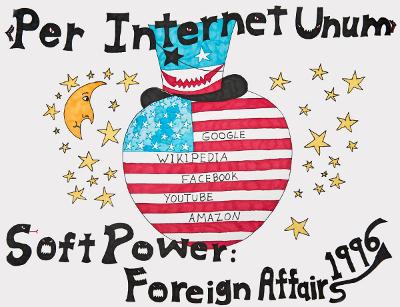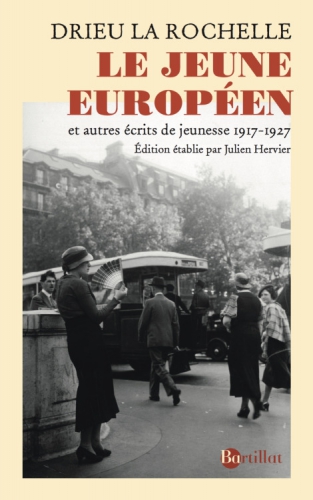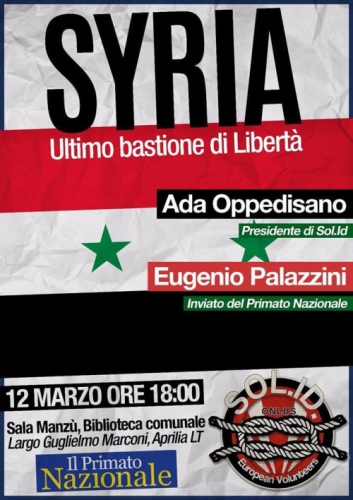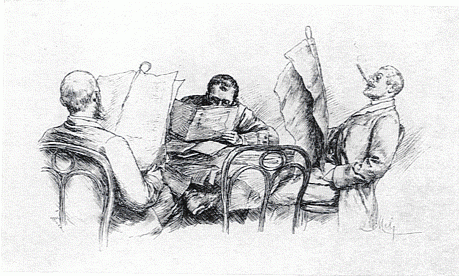Ex: http://www.counter-currents.com
In general, northwest European nations and nations of predominantly northwest European descent (such as the United States of America, Canada, Australia, and New Zealand), have in the modern era been more prosperous, cohesive, dynamic, and civil than other European nations. There is a downright boring regularity with which international organizations and think-tanks report, year after year, that the “nicest” places to live are Sweden, Denmark, Norway, Finland, Switzerland, Austria, and Canada. The most economically prosperous and dynamic Western countries consistently include the United States, Canada, Great Britain, and Germany (the latter despite absorbing an economically deformed and damaged East Germany).
The relationship between northwest Europeans and other Europeans in some respects parallels that between Europeans and non-Europeans: There is often pronounced envy for the Northwest Europeans’ perceived success, often seesawing between imperfect imitation and nativist self-assertion.
There are something like concentric circles of self-confidence and envy as one goes from the northwest European core outwards. This is particularly evident in the politics of the European Union, in which tensions and crises often reflect heterogeneity between European nations.
Thus France, despite being a fairly strong performer generally, looks longingly upon German economic competitiveness. French elites have also been jealous of German economic discipline in avoiding recourse to inflation and monetary devaluations. French elites’ push to create the euro common currency was in part motivated by a desire to lock France into a Germany-style monetary system in which devaluations and inflation would be materially impossible, thus, they thought, forcing Teutonic discipline and virtue upon the country.
Italy, with a prosperous northern part of the country and an underperforming south, is much the same. The Italians adhere to the European Union as a way of achieving a northern European quality of life and civility. Italian participation in the Eurozone was, quite explicitly, predicated on a desire to abandon the undisciplined chaos of Italian parliamentary politics and its associated inflation and deficits. Italian elites quite self-consciously chose, instead, to subject their country to a semi-authoritarian European macroeconomic regime, in the hope of acquiring German-style monetary and budgetary disciplines.
One could say the same thing of Spain, Portugal, Greece, and indeed most of the Balkans, such as Romania and Bulgaria. In each case, the nation’s economics are mediocre and her politics and society are variably corrupt, and each longs to live like northern Europeans by associating with them through the European Union. The same is true for some prospective nations seeking to join the Union such as Ukraine, Serbia, and Moldova. They all hope northwest European virtue will rub off on them as a result of socialization in a joint polity.
One can enlarge the circle further still: Russia has long been torn between Westernizing and nativist tendencies. No doubt Nikolai Trubetzkoy has written most eloquently on the Sisyphean futility of aping northwest Europeans (whom he called “Romano-Germans”):
Europeanized [i.e. Westernizing] nations, finding it impossible to keep pace with the Romano-Germans and so gradually falling behind, try to catch up from time to time by attempting long leaps. Such leaps distort the entire course of historical development. A nation must cover very quickly a distance that the Romano-Germans covered gradually and over a much longer period of time. It must skip several historical rungs and create overnight, ex abrupto, what arose in Romano-Germanic nations as a result of a “series of historical changes”. The consequences of such “leaping” evolution are terrible. Every leap is followed by a period of apparent (from the European standpoint) stagnation, when it is necessary to bring order to the culture, to coordinate the results achieved by a leap in a particular area with other elements of the culture. During this period of “stagnation”, the nation again falls even farther behind. The histories of Europeanized nations are always characterized by brief periods of apparent “progress”, alternating with more or less protracted periods of “stagnation”. In destroying the wholeness and the unbroken incrementalism of the historical process, such historical leaps also disrupt tradition, which is already fragile in a Europeanized nation.

Let us emphasize: unbroken tradition is a prerequisite for normal evolution. Leaps and jumps create a temporary illusion that the “common European level of civilization” has been achieved, but they cannot advance a nation in the true sense of the word. Leaping evolution wastes national energies, which are already overburdened owing to the very existence of Europeanization. Just as a person who, in trying to keep pace with a speedier companion, will become exhausted and collapse after resorting to long jumps to catch up, so a Europeanized nation will perish after choosing such an evolutionary path and squandering there its national energies. And all of this will happen while faith in oneself is lost, and without the sustaining sense of national unity which was destroyed long before by the fact of Europeanization.
No doubt, trying to acquire northwest European habits through socialization is not an entirely futile idea. But personally, I tend to side with Trubetzkoy and Mircea Eliade in thinking that each European nation should embrace its own personality, rather than lose self-confidence in setting up (northwestern) “Europe” as the ultimate ideal and wasting energies in crudely imitating this imagined model. Nothing is possible, for either a man or a nation, without self-knowledge and self-esteem.
Finally, beyond Europe, Turkey under Mustafa Kemal Atatürk made a strategic decision to shed her imperial, Islamic, and Middle Eastern heritage in favor “joining Europe” with the creation of a secular French-style nation-state. This ambition has failed, Turkey remaining what Samuel Huntington called a “cleft country” torn between civilizations, perpetually kept out of the European Union, and increasingly returning to its Islamic and Middle Eastern roots under Recep Tayyip Erdoğan. This is visible, not least, in the Turks’ partial abandonment of secularism and their almost Semitic attachment to Turkish immigrants and their descendants in the West. Erdoğan explicitly considers ethnic Turks in the West, regardless of whether they are first generation immigrants or born there, to be an extension of his nation (in this, the Turkish attitude is identical to that of North African Arab governemnts).
Conversely, northwest European countries are often the most skeptical of the EU project. Great Britain, Sweden, Denmark, Norway, Switzerland, and Iceland have all opted out of parts of the European Union. These countries, being prosperous and civil on their own, do not feel the need for association with other Europeans to improve their lot and are more likely to have the self-confidence to believe they can get by just fine on their own.
There is another aspect of northwest Europeans which is worth consideration: Their nations are consistently the most “pozzed.” Those nations which are the most fanatical and authoritarian in pursuing the imperatives of liberal-egalitarian and multiculturalist ideology, are typically of northwest European stock. Sweden’s notorious excesses are roundly mocked. Canada’s baby-faced Prime Minister Justin Trudeau is a caricature of an effeminate liberal, almost every day performing a new emasculating profession of Potemkin equality, of literally crying to disown his ancestors in the hope of appeasing Amerindians, and of justifying feminist policies on the utterly mindless grounds that “it’s [the current year]!” (Trudeau’s profession of egalitarianism is suspect by the fact that, like Hillary Clinton, he is only a senior politician by being the heir of a political family. His egalitarianism is shown to be an outright fraud by his attack on the BDS movement, which argues for relatively minor economic sanctions on Israel until the Jewish state lives up to the West’s supposed democratic ideals and ceases to oppress the Palestinians. Hence Trudeau has no interest in applying egalitarianism on the world’s most ethnocentric and most privileged ethnic group.) Germany has been the most enthusiastic major European nation in welcoming millions of uneducated, often illiterate, low-IQ military-age African and Islamic males. Great Britain and the United States are in general not far behind in proudly advertising their embrace of the suicide cult.
Correlation does not always imply causation. The roots of northwest Europeans performance and degeneracy are no doubt very complex and difficult to disentangle. I have no interest in resurrecting crude Nordicist theories, extremist interpretation of which have, no doubt, been the among the most important causes for European fratricide and collapse in the twentieth century.
But I also believe that the truth should never fear investigation. It seems too much to think all these correlations are mere coincidences. The speculation of many human biodiversity scholars about the so-called “Hajnal line” often smacks as a euphemism, conscious or not, of Nordicism. Speaking of which, the quite obvious genetic cluster formed by northwest European nations just happens to largely coincide with the outlines of the Hajnal line.
All this fits rather neatly with the traditional thesis that northwest Europeans — having evolved during the Ice Age in a harsh environment with low population density — would have been selected from relatively lower ethnocentrism, and possibly for moralistic cooperation, defined by cultural group norms rather than ethnocentric boundaries. It would certainly predict lower corruption among northwest European nations and higher ethnocentrism and relatively intractable corruption everywhere else. No doubt northwest Europeans’ relative success in creating prosperous and comfortable societies, also tends to reduce the ethnocentric instinct and lower their guard to the threats posed by multiculturalism.
In any event, all this should be freely investigated.
As an addendum, I would stress that I have no interest in advocating “Nordic superiority.” Firstly, parochialism and the narcissism of small differences dividing our nations has been disastrous in the past and will be equally disastrous if maintained in the future. Genetic differences among Europeans remain absolutely minuscule compared to differences between continents, and most pointedly between us and rising China or the exploding populations of Africa and the Ummah.
Secondly, no doubt there are unique desirable adaptations among each European group, which should be preserved, identified, and cultivated. What’s more, what is evolutionarily adaptive is highly contextual, depending on often fluctuating environment. Northwest Europeans may have traits which fostered their dynamism and success in the past, but today these same traits seem to make them uniquely vulnerable to egalitarian and multiculturalist propaganda, and are making them wreck their own nations with the greatest enthusiasm. On current trends, we can safely say that within a hundred years America, Anglo-Canada, Quebec, Germany, Great Britain, France, the Benelux countries, and the Nordic countries will simply cease to exist as nations. The existential prospects for eastern and southern European nations, not forgetting Argentina, are infinitely brighter.
Céline believed that the White race’s fate was sealed with Germany’s defeat at Stalingrad. Adolf Hitler failed perhaps above all because of his contempt for the Slavs, a catastrophic error of doctrine for which he, his Germany, and all of Europe paid then and are paying still an incalculable price. And yet — what irony! — today these same Slavs seem to be those most likely to survive this century and carry on the torch of European civilization.





 del.icio.us
del.icio.us
 Digg
Digg


 La vision du soft power se heurte ou se mélange souvent à une autre notion plus populaire chez les Républicains, celle de "diplomatie publique". Cette dernière renvoie aux méthodes de guerre idéologique contre l'Urss employée dès la présidence d'Eisenhower et auxquelles Reagan prêtait un grand rôle dans sa victoire dans la guerre froide : créer des radios qui émettent dans la langue de l'adversaire et jusque sur son territoire (Voice of America, Radio Free Europe...), encourager les mouvements intellectuels anticommunistes, accueillir et garder le contact avec de jeunes étrangers prometteurs (young leaders)supposés pro-Américains. Évidemment la diplomatie publique a retrouvé une nouvelle jeunesse après le onze septembre.
La vision du soft power se heurte ou se mélange souvent à une autre notion plus populaire chez les Républicains, celle de "diplomatie publique". Cette dernière renvoie aux méthodes de guerre idéologique contre l'Urss employée dès la présidence d'Eisenhower et auxquelles Reagan prêtait un grand rôle dans sa victoire dans la guerre froide : créer des radios qui émettent dans la langue de l'adversaire et jusque sur son territoire (Voice of America, Radio Free Europe...), encourager les mouvements intellectuels anticommunistes, accueillir et garder le contact avec de jeunes étrangers prometteurs (young leaders)supposés pro-Américains. Évidemment la diplomatie publique a retrouvé une nouvelle jeunesse après le onze septembre. 



